23/04/2024
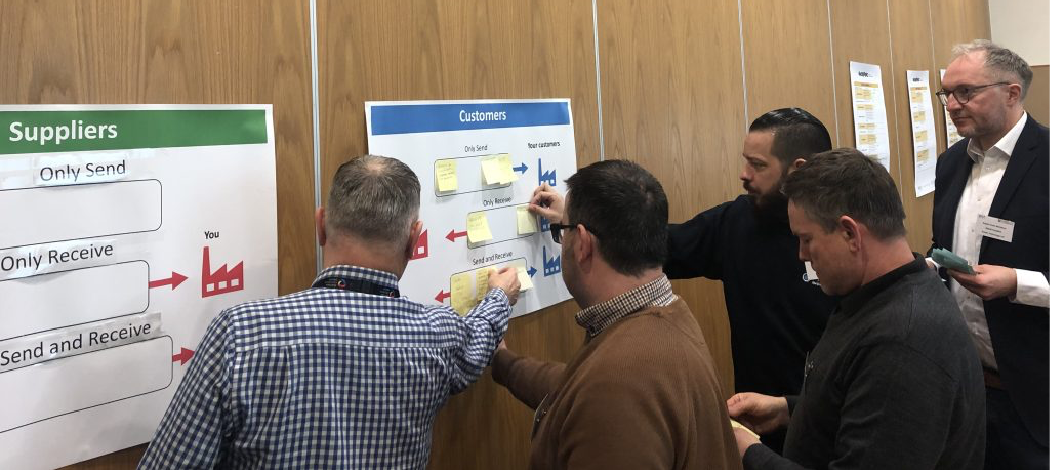
The event at the Institute for Manufacturing, University of Cambridge, brought together two different workshops and showcased the low-cost data sharing solutions used in the IfM’s offices, robot and 3D printing labs.
The morning started with a Shoestring Digital Needs workshop, which is based on the original Shoestring Requirements workshop developed during the EPSRC-funded research project, 2018-2022. This session was followed by a newly devised Supply Chain Requirements workshop, designed by Dr Sam Brooks and Professor Duncan McFarlane as part of the Made Smarter Connected Factories research project using the Shoestring workshop tool, and support from IfM Industrial Associate, Liz Salter.
At the Digital Needs workshop participants identified their business priorities and constraints, so that they could explore how different low cost solutions could address their business challenges. All participants were interested in supply chain challenges and came from a range of 9 manufacturing companies, a software security company and 6 organisations.
Digital Needs workshop results
The results from this first session aligned well with Shoestring’s top 10 ranked solution areas, which is compiled using findings from previous Shoestring workshops run over the last four years. Participants chose seven of the solution areas that appear in Shoestring’s top 10, but they also chose two new areas that have not been seen in previous 10 top lists – including supply chain monitoring and employee training management. See Figure 1.
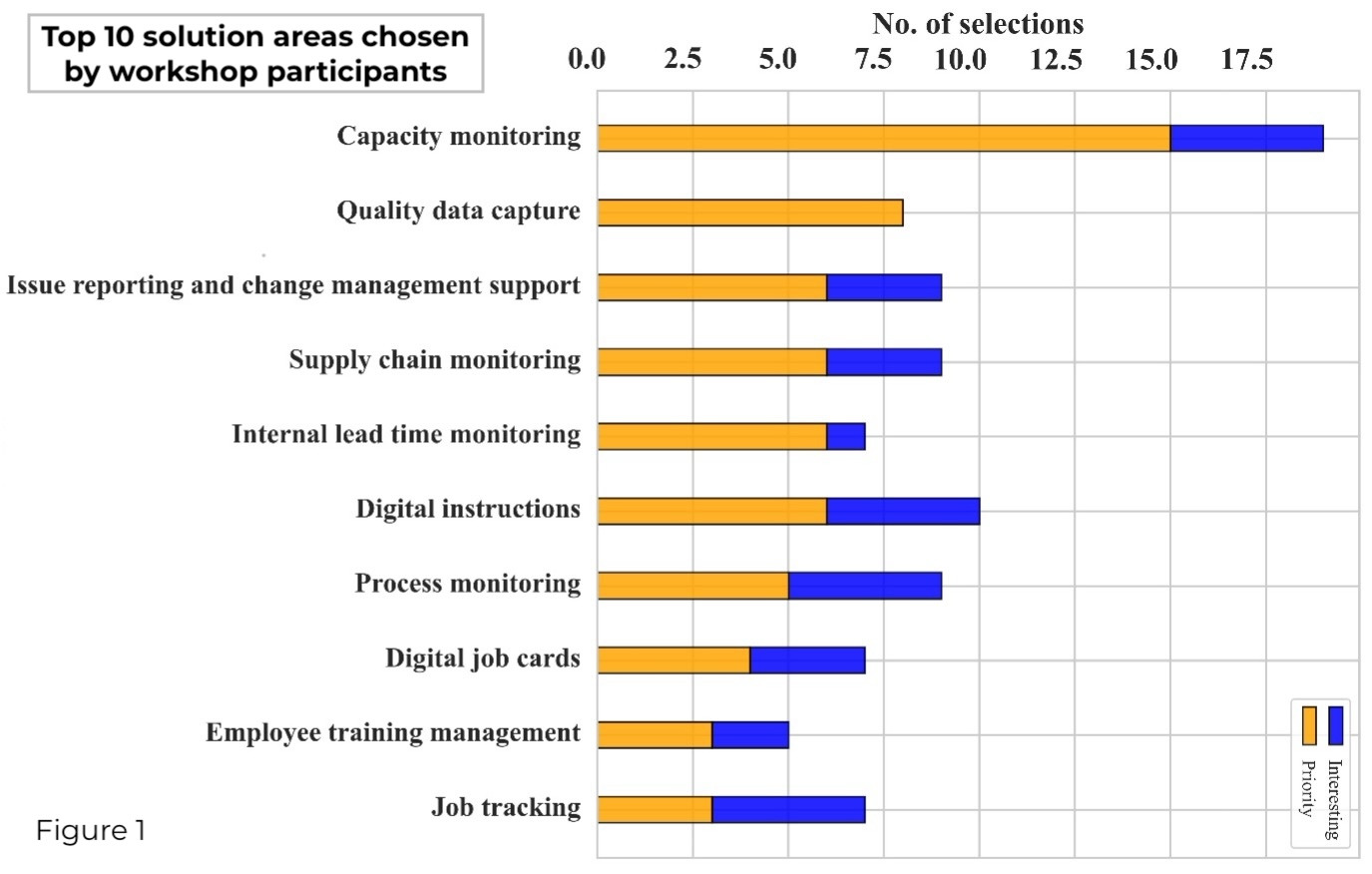
Supply Chain Requirements workshop results
The majority of manufacturers participating were most interested in sharing data related to quality and logistics / delivery information. However there was also a desire to both share and receive information which would help with future production capabilities, future forecast of sales and product specific information. The image in Figure 2 highlights some of the key types of data that were chosen.
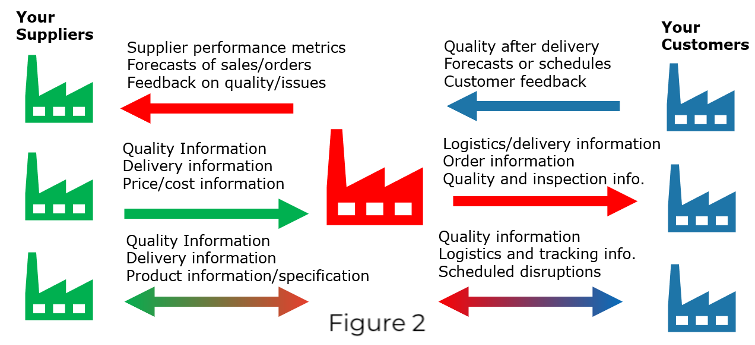
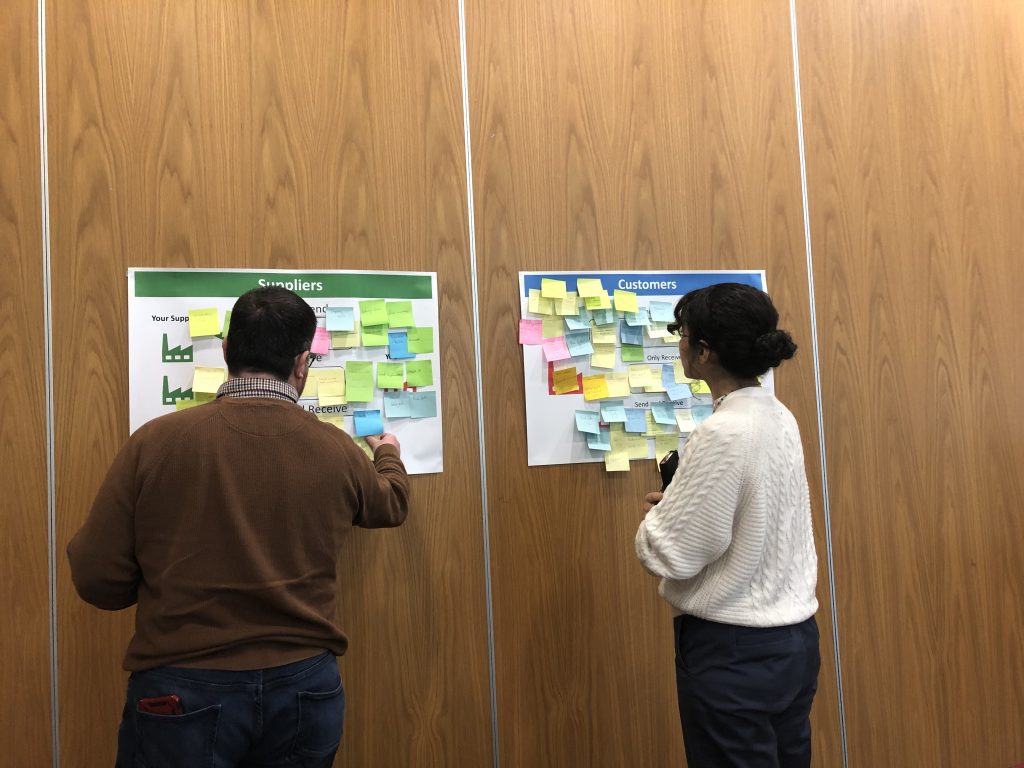
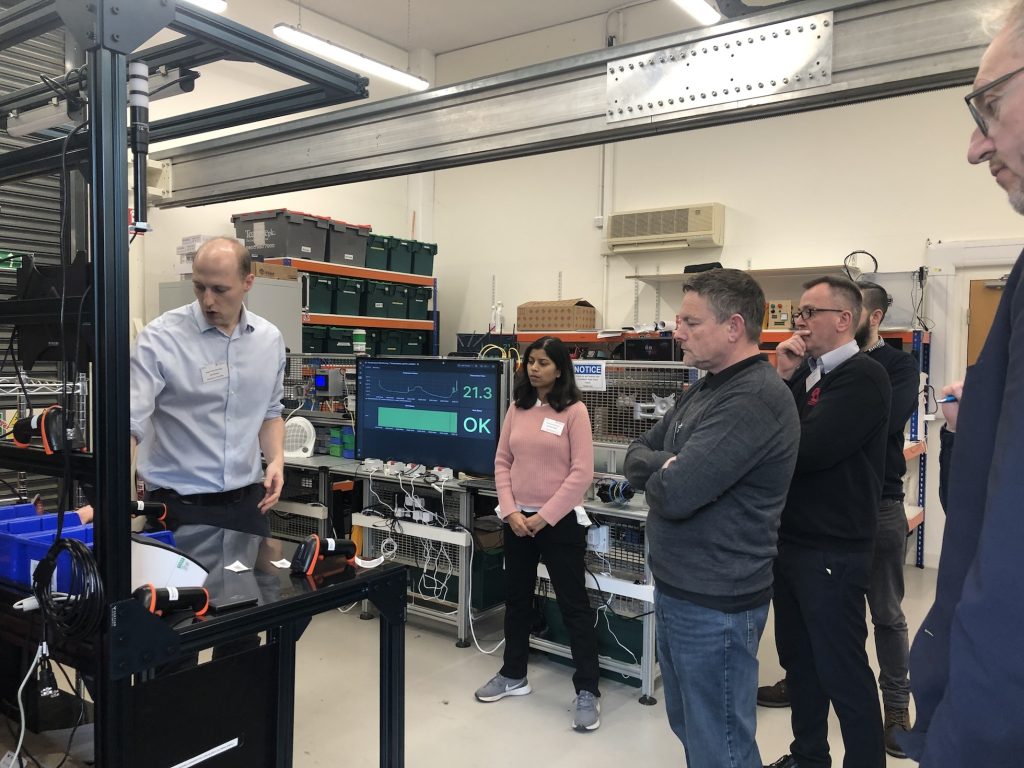
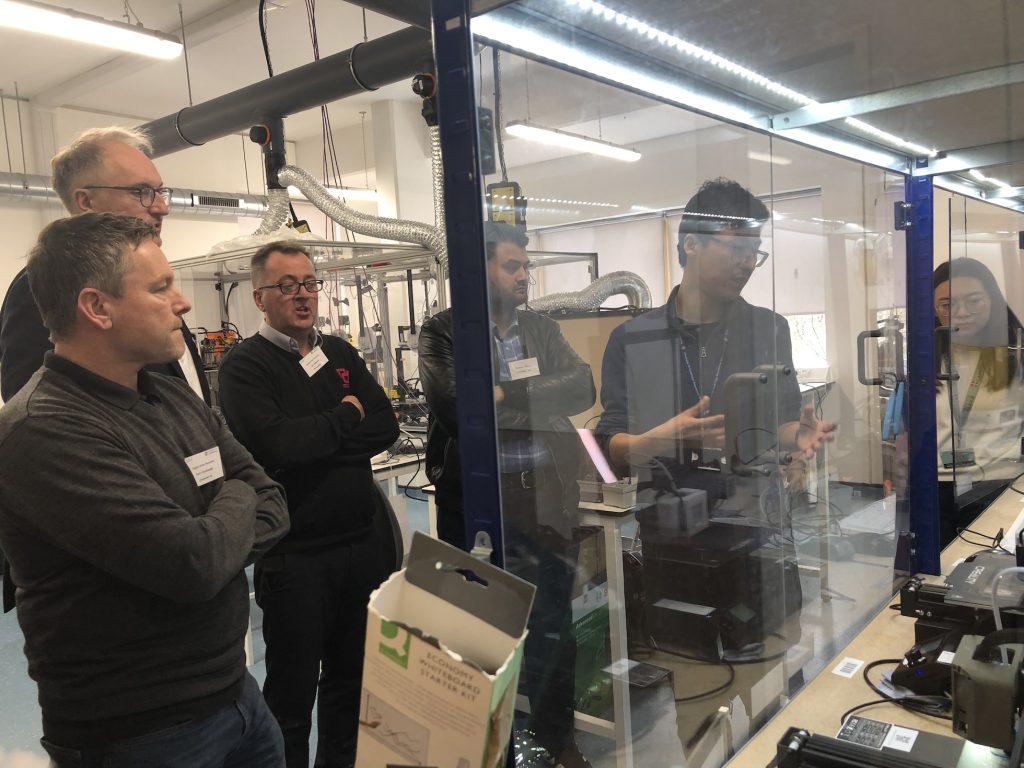
If you’d like to find out more about the Connected Factory and Elastic Manufacturing projects, please contact Dr Sam Brooks at sjb351@cam.ac.uk.
Or send us an email at contact@digitalshoestring.net.
